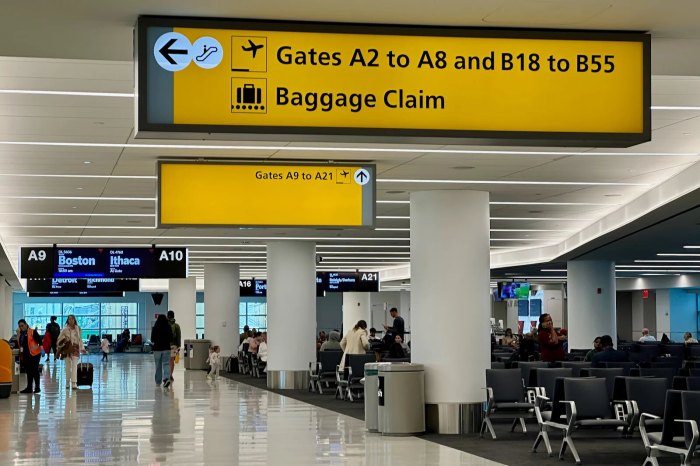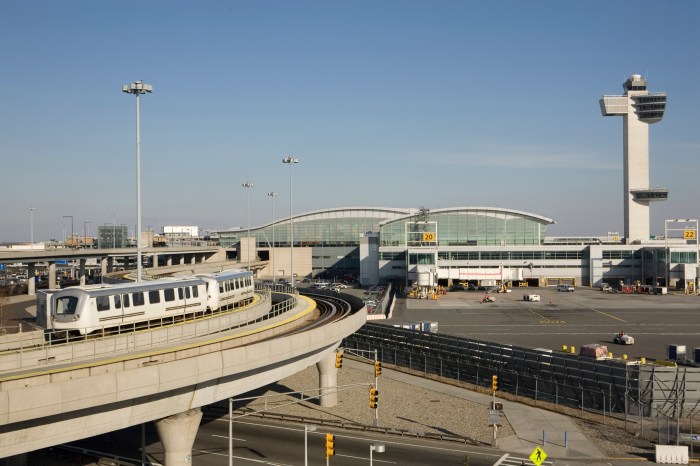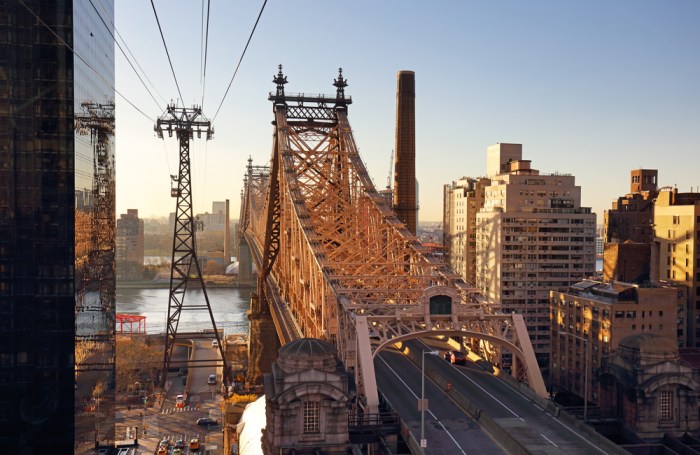By Madina Toure
About 70 northeast Queens residents flocked to Queensborough Community College last week to voice concerns about bus service in the area at a public workshop run by the MTA.
State Sen. Tony Avella (D-Bayside), who initiated the Northeast Queens Bus Study last year, said the workshop was a chance for residents to speak on the specifics of bus-related issues in the area.
“My hope is that after this study is done, it shows we need more bus service, we need to change routes, we need to improve service, we maybe need some new routes, but this is your opportunity to say exactly what the problems are and what your needs are,” Avella said during the workshop.
Transportation planners for NYC Transit and MTA Bus Company presented the study. Facilitators led groups in which residents placed stickers on a map of northeast Queens indicating specific areas with bus problems.
Concerns raised during the workshop included students arriving to school late due to bus delays, schedules posted at bus stops not reflecting accurate bus times, bus bunching and buses that stop running after a certain time in the day.
The $500,000 study, money allocated in the state executive budget, looks at service primarily in the neighborhoods of Flushing, Whitestone, Bay Terrace, Bayside, College Point, Oakland Gardens, Douglaston, Glen Oaks, Fresh Meadows and Little Neck.
Its study area centers on Van Wyck Expressway and Queens Boulevard to the west, Hillside Avenue to the south, the Nassau County line to the east and the East River to the north.
The study area currently has 41 bus routes, which includes 22 local New York City Transit bus routes, one NYC Transit express route, seven local MTA Bus Company routes and 11 express MTA Bus Company routes.
MTA New York City Transit operates public transportation in the city, including the subway, buses and the Staten Island Railway and the New York City Bus, according to the MTA website. The MTA Bus Company oversees bus routes that used to be run by private companies.
Existing local coverage covers 99 percent of northeast Queens. Existing express bus service, which includes subway and LIRR stations, covers 87 percent of northeast Queens.
Restored service changes since 2010 include Q14 service, weekend Q13 service, Saturday Q76 service, and Q79 service. Service improvements include Q76 Sunday service, the Q30 to Queensborough and the proposed Flushing-Jamaica SBS corridor.
Douglaston resident Robert Baker, 70, who teaches at Queensborough, interrupted the group sessions with a public announcement criticizing the cost of the study.
“It is a true boondoggle to be spending a half a million dollars to find out something that’s already known,” he said. “There’s no way in the world that $500,000 of taxpayer dollars needed to be spent on determining that which is already clearly known: there aren’t enough buses.”
Daniel Dragan, 26, of Jamaica Estates, said Q17 offers the best service while Q76 might have only four buses in one hour during rush hour. He said the MTA should concentrate its efforts on eliminating bus bunching.
Oakland Gardens resident Sonia Rodriguez, who teaches Spanish at Benjamin Cardozo HS in Bayside, takes the Q27 to work and sometimes sees four buses pass by her bus stop without stopping.
The workshop was well-organized, she said, although noting the facilitator could have given more information about resources the agencies have to improve bus service.
She understood Baker’s financial concerns. but said it is a good start.
“The reality is that probably he’s right, probably it’s too much money, but on the other hand, if we don’t start to call the people from the community, nothing will change,” Rodriguez said. Mark Henry, president of Amalgamated Transit Union Local 1056 in Rosedale, questioned the lack of representation for students in the study.
“They needed to be considered in the survey because they ride the service,” Henry said.
The agencies had initial meetings with Community Boards 7, 8, 11 and 13 in November and December. They plan to follow up with the boards in March or April and then release the final report by May.
Reach reporter Madina Toure by e-mail at mtour



































